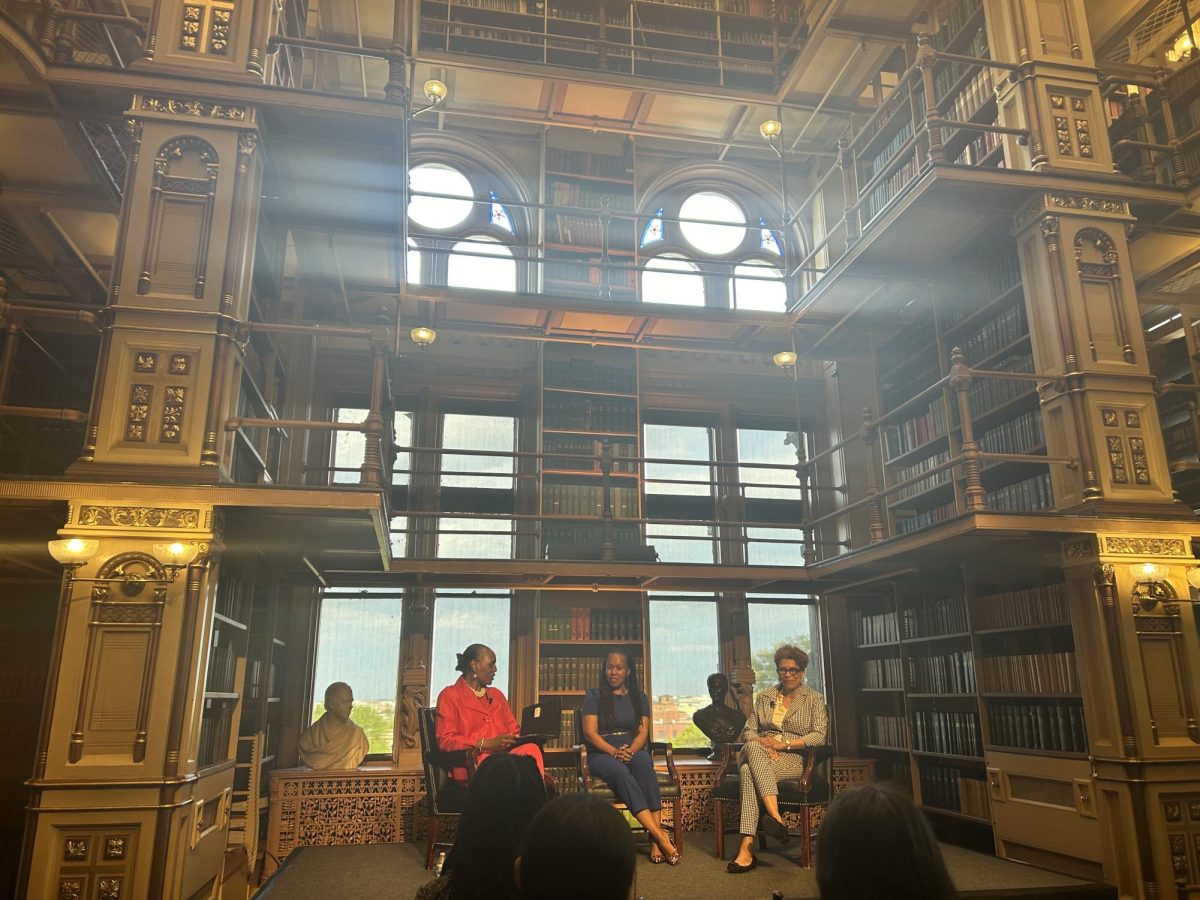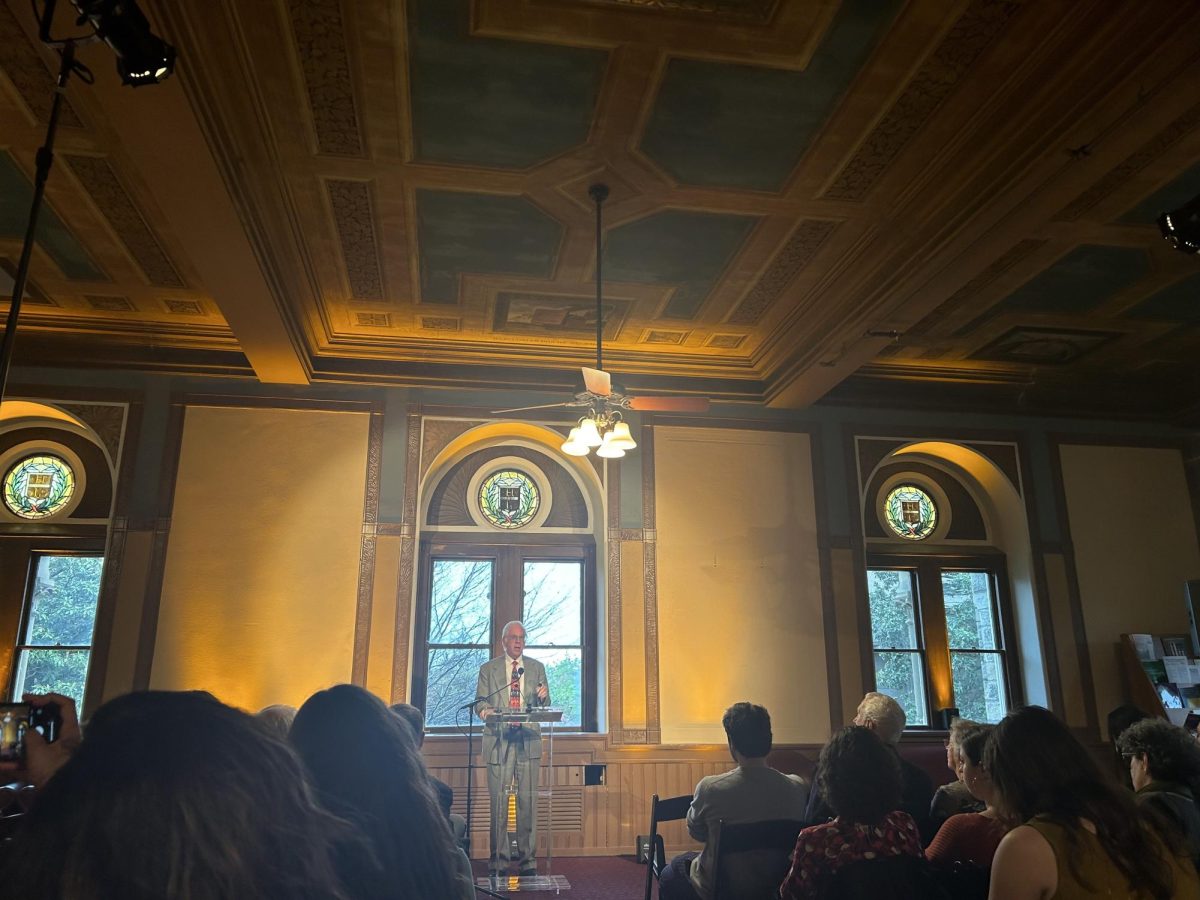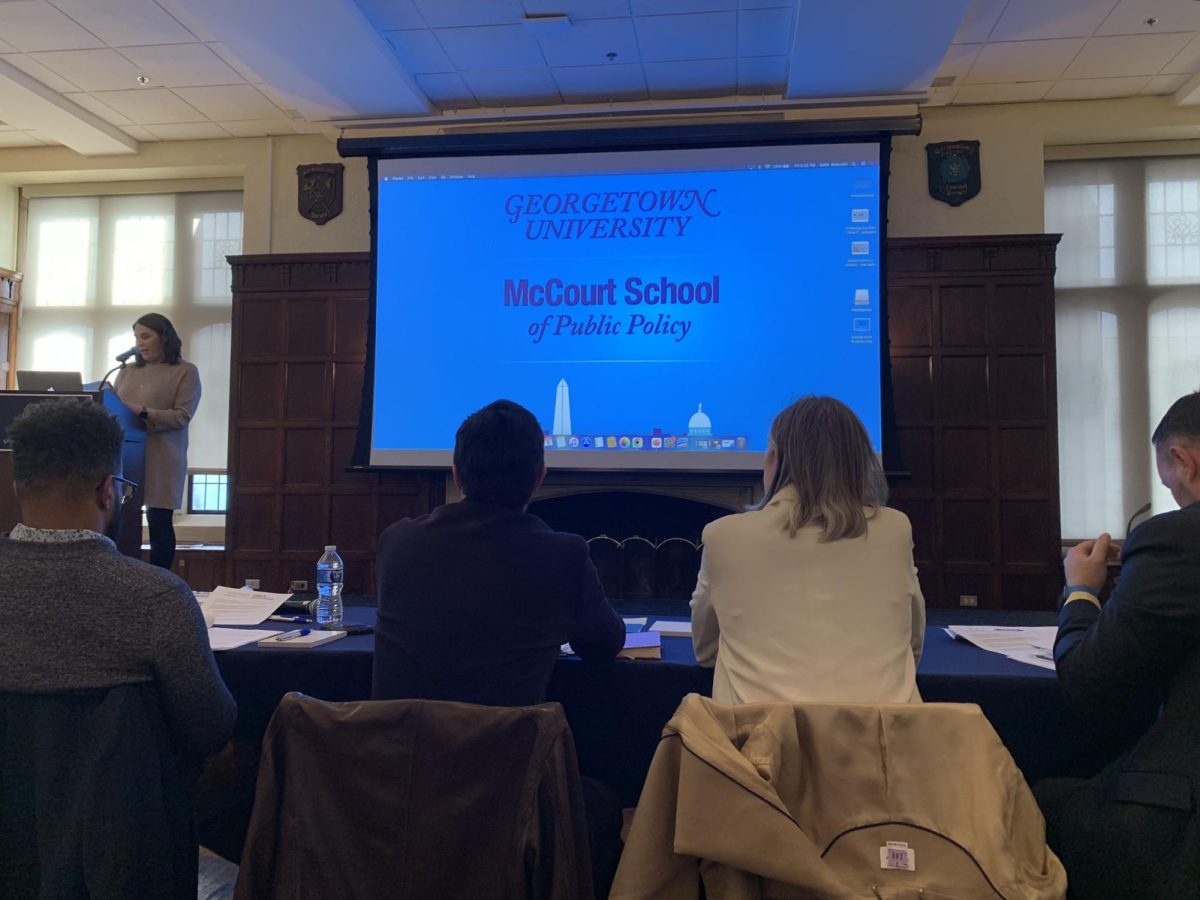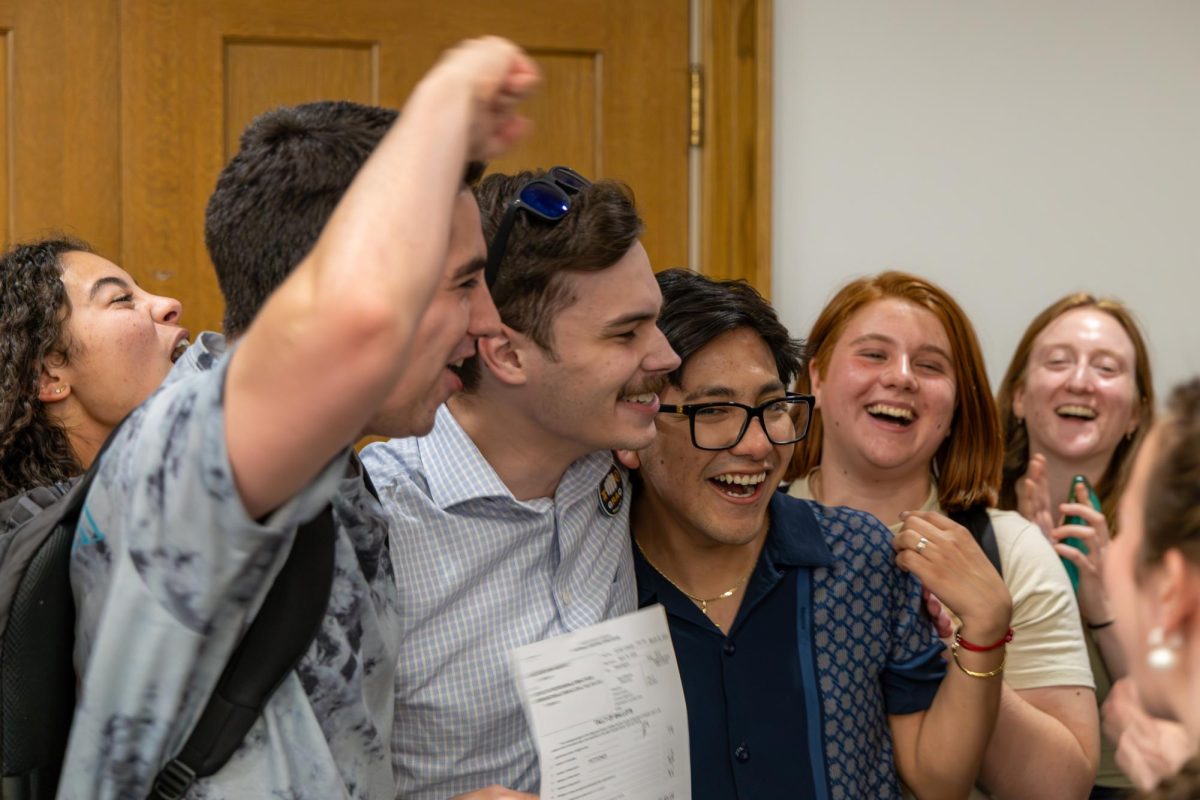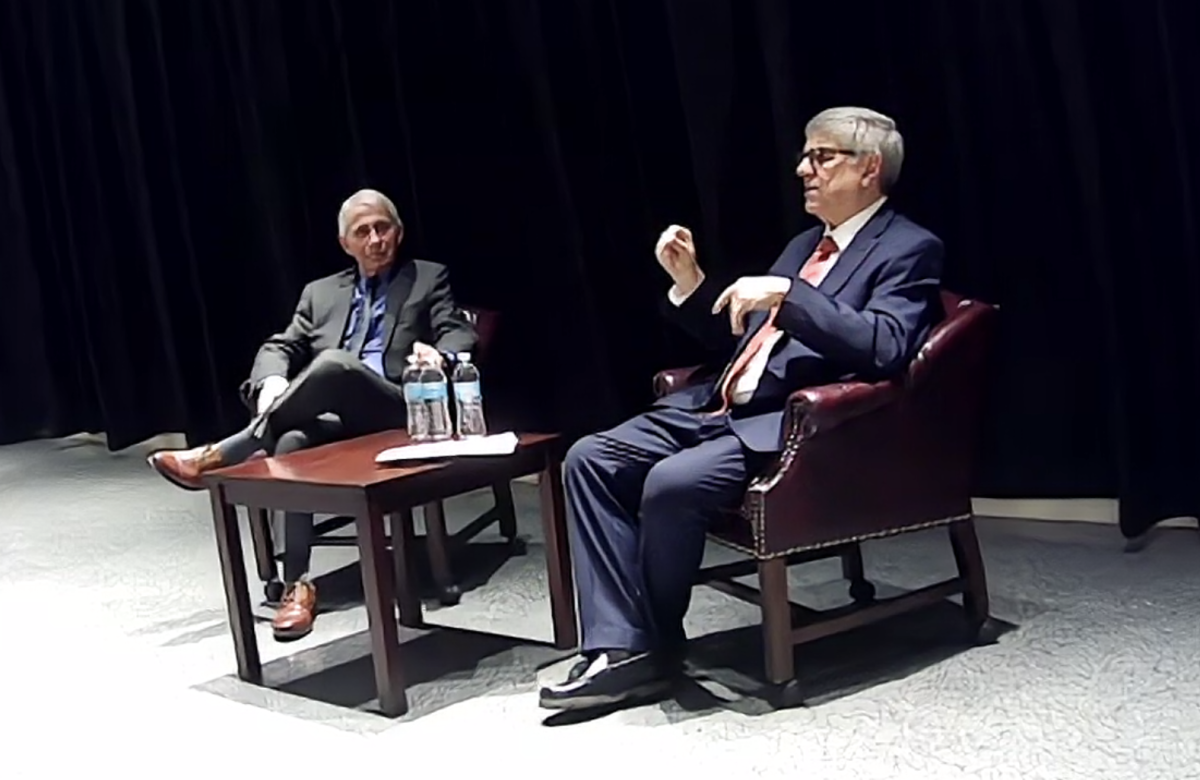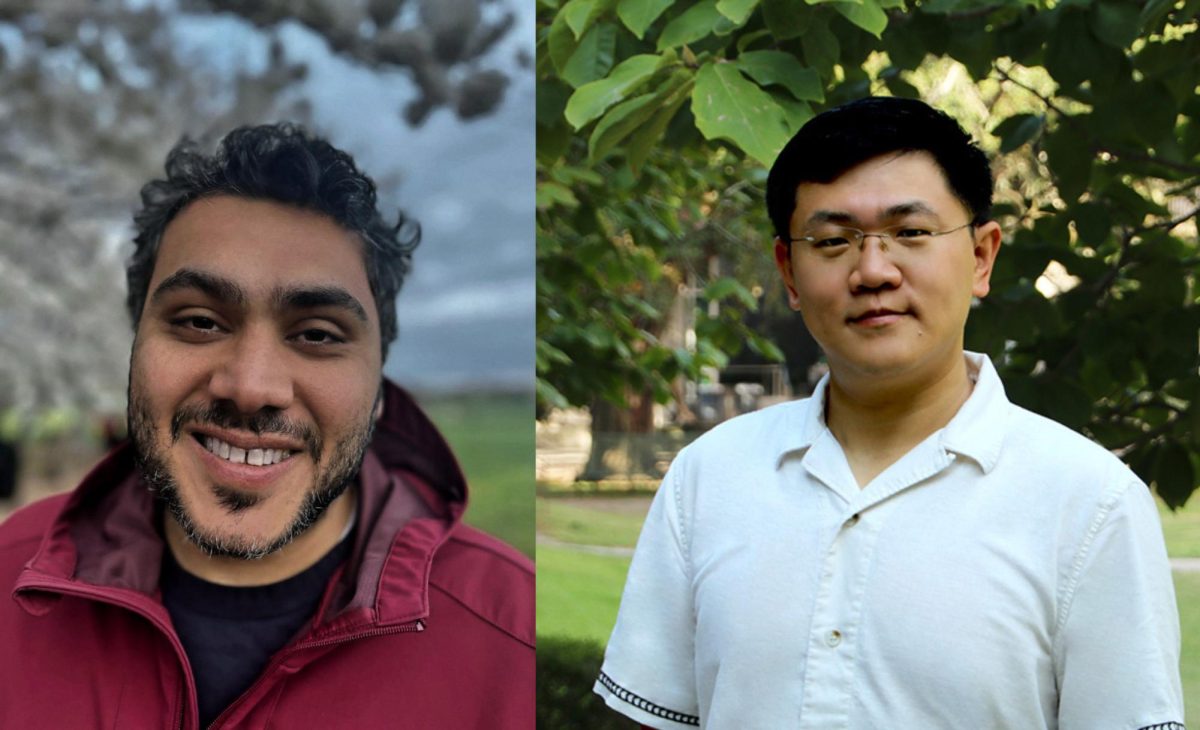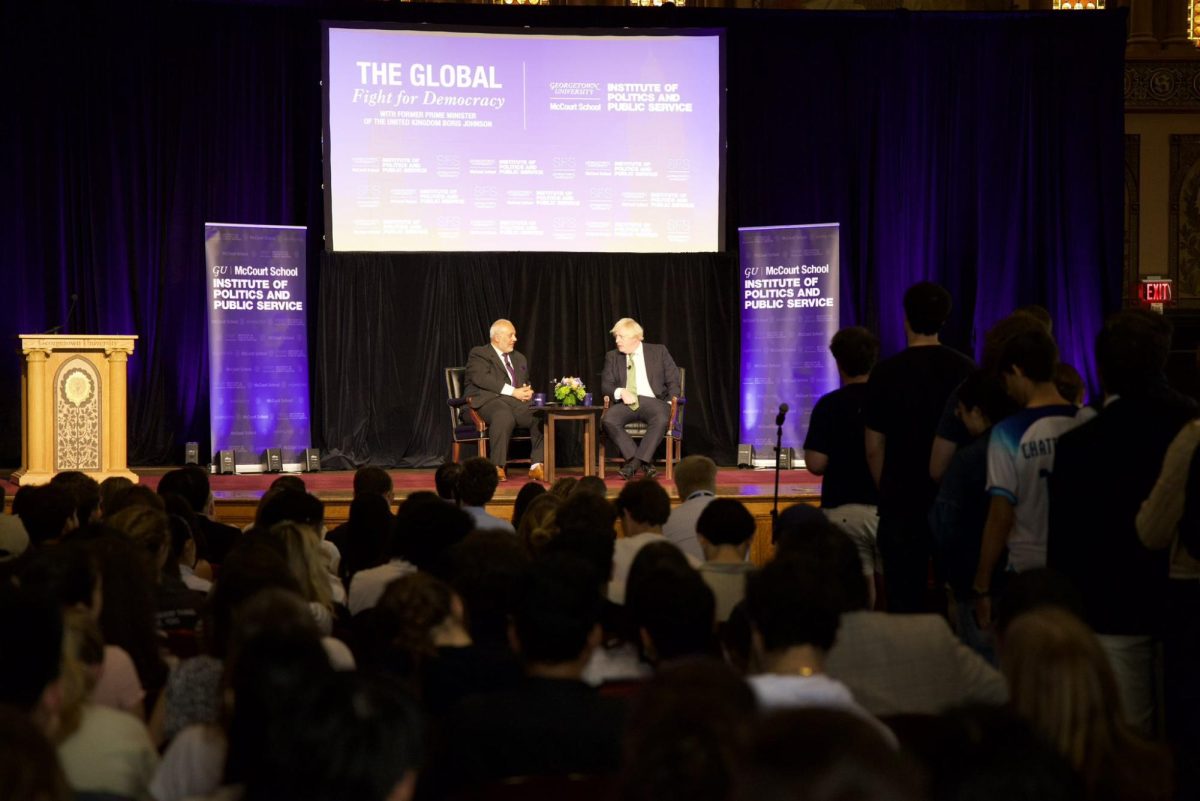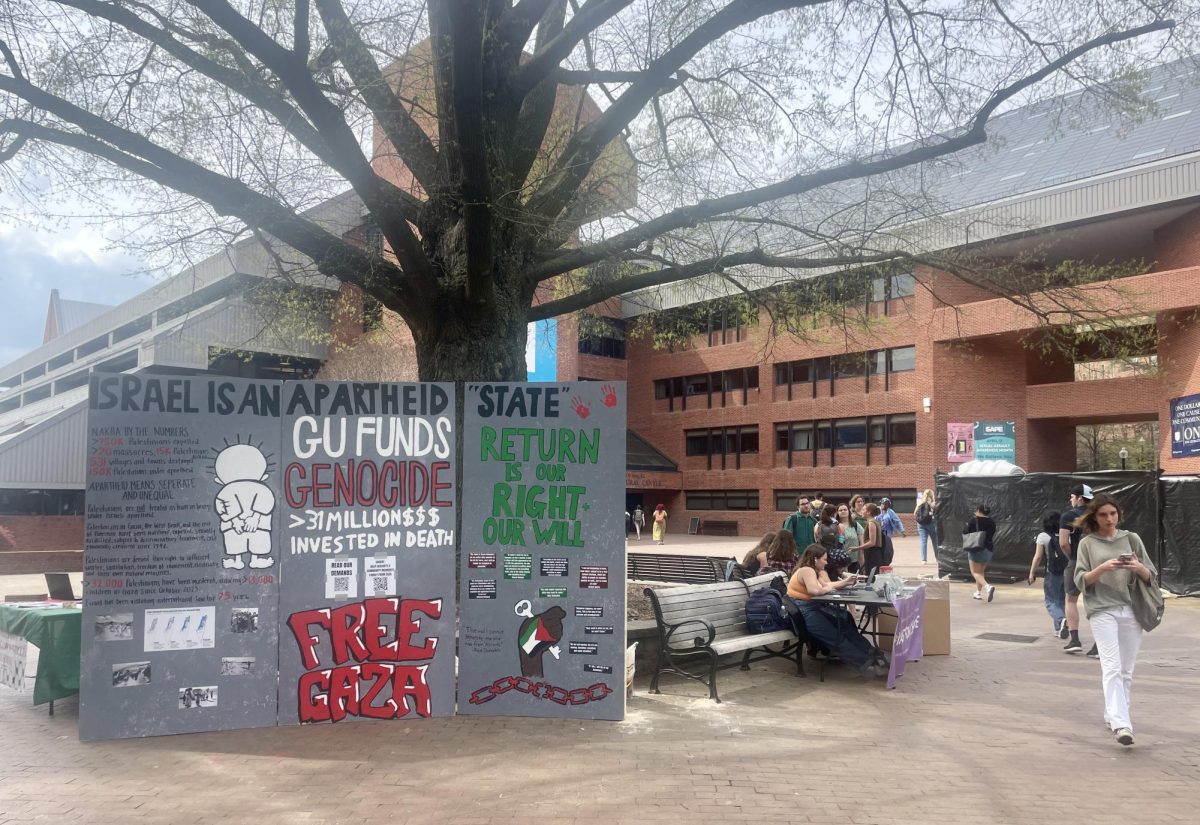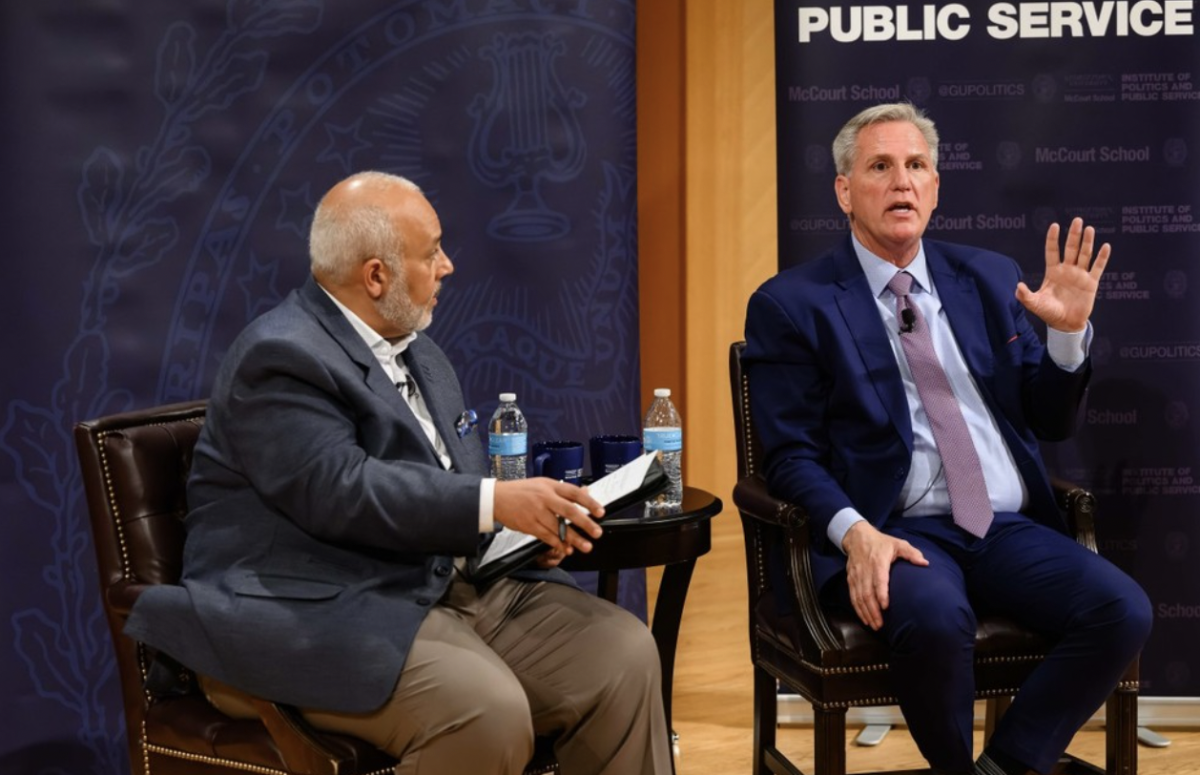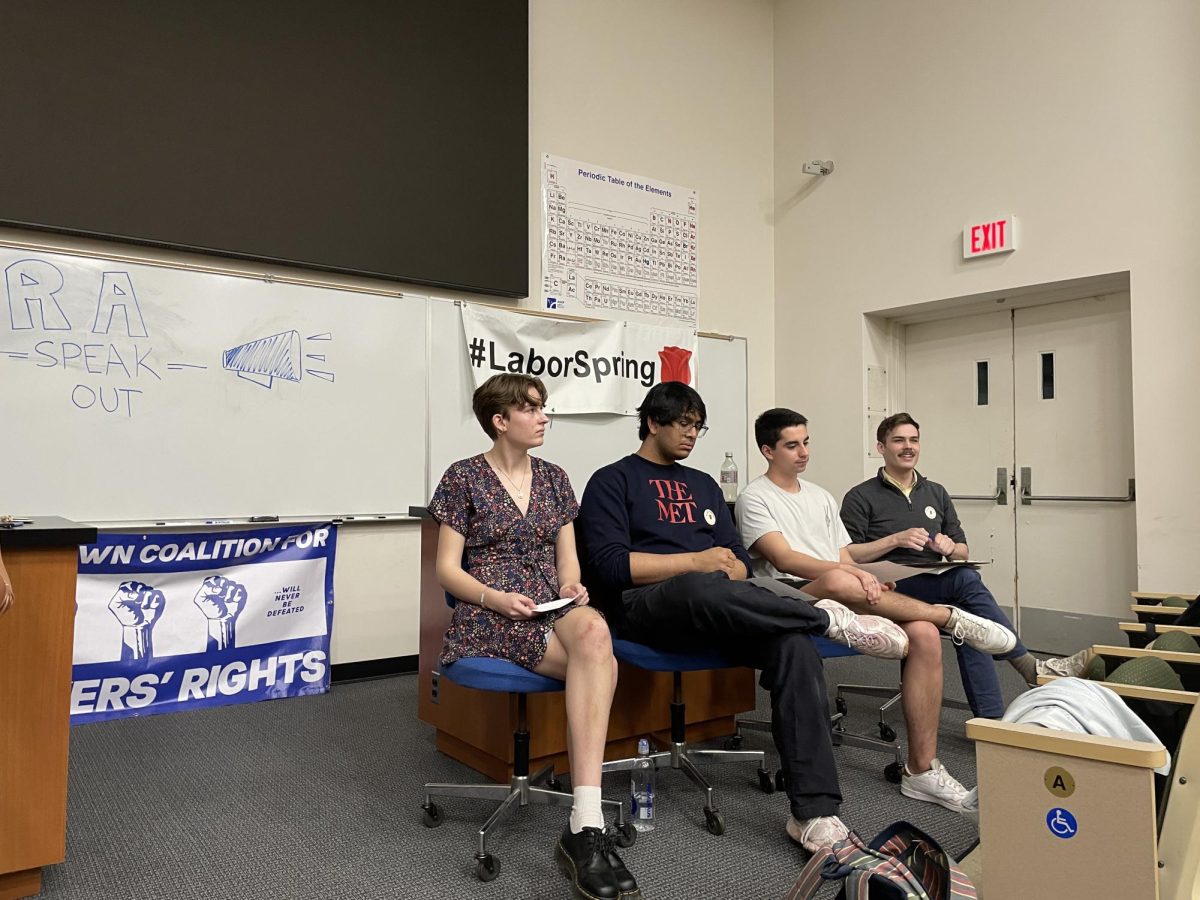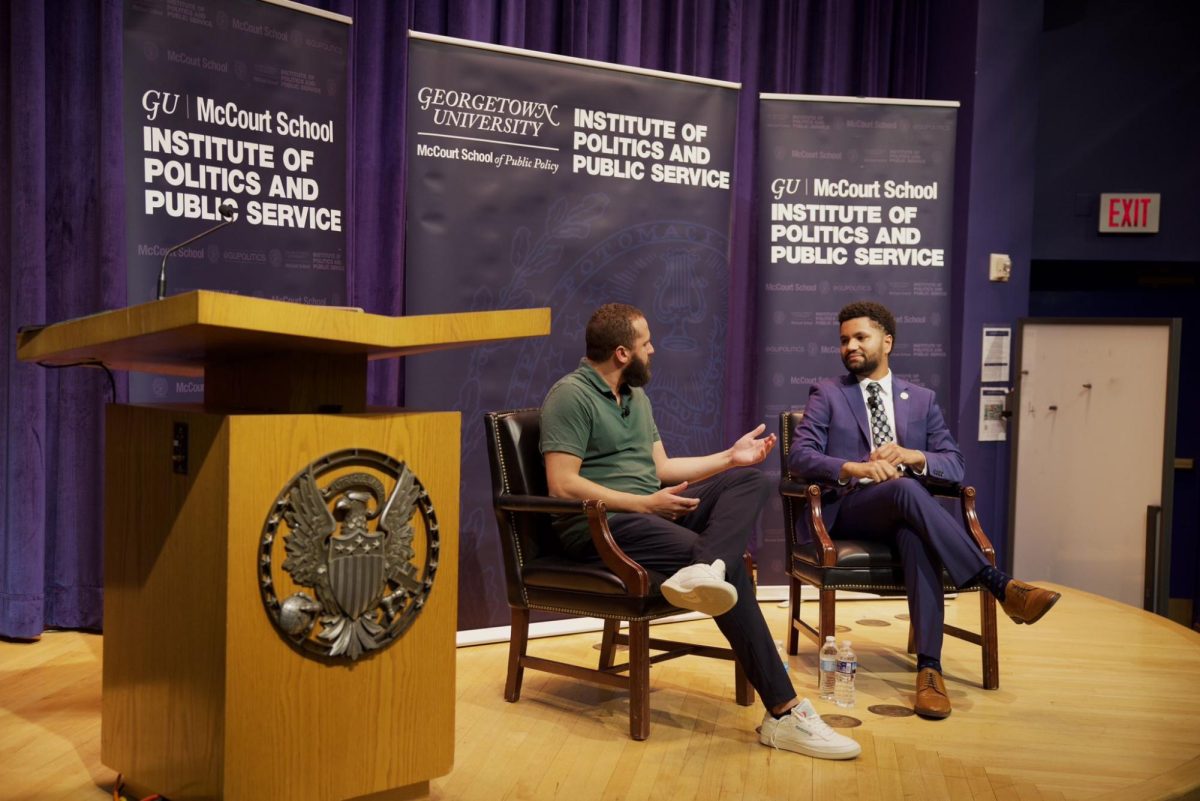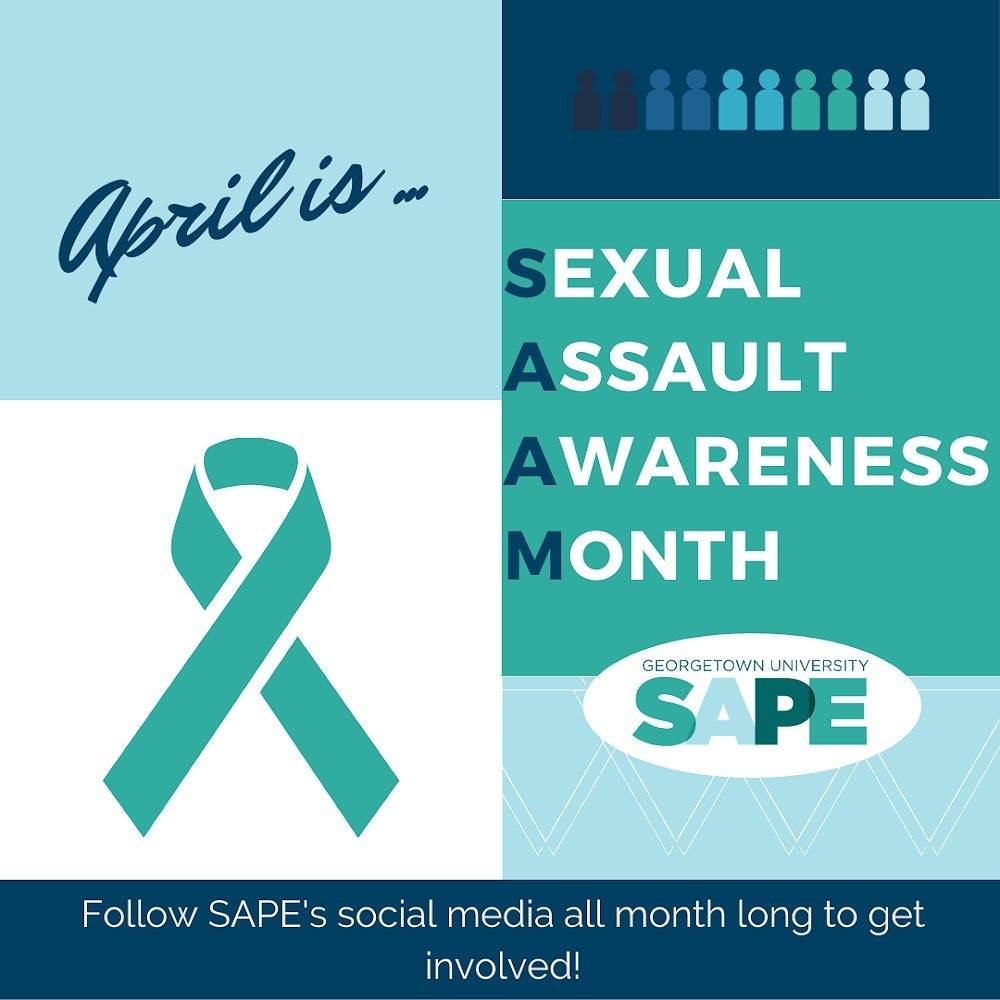CW: This article references violence in Afghanistan. Please refer to the end of the article for on- and off-campus resources.
Shouts of “Biden, protect Afghan women!” and “Don’t abandon Afghan women leaders!” echoed down 16th Street en route to the White House during the Aug. 29 March for Afghan Women.
A crowd of over 200 protesters gathered in Lafayette Square last Sunday to demand the United States support the evacuation of vulnerable women from Afghanistan following President Joe Biden’s decision to withdraw all U.S. troops from the country by the end of August. The march was organized by the Georgetown Institute for Women, Peace and Security along with several other international women’s organizations and Afghan advocacy groups.
According to Sarah Rutherford, the director of communications and external affairs at GIWPS, the organization plans to continue advocating for Afghan women after the protest.
“We continue to call on the US Government and international community to support Afghan women, whether through evacuations of the most at-risk women leaders or ongoing assistance to those who remain in Afghanistan under Taliban rule,” Rutherford wrote in an email to The Hoya.
Under Taliban rule from 1996 to 2001, women in Afghanistan were given limited freedoms, facing bans from working or attending school and harsh punishments such as beatings, torture or execution if they disobeyed. Despite the Taliban’s recent assertions that they would uphold the same women’s rights as under the previous Afghan government implemented in 2001 following the U.S. invasion of the country, activists fear the reemergence of the same oppression due to recent acts of Taliban violence against women.
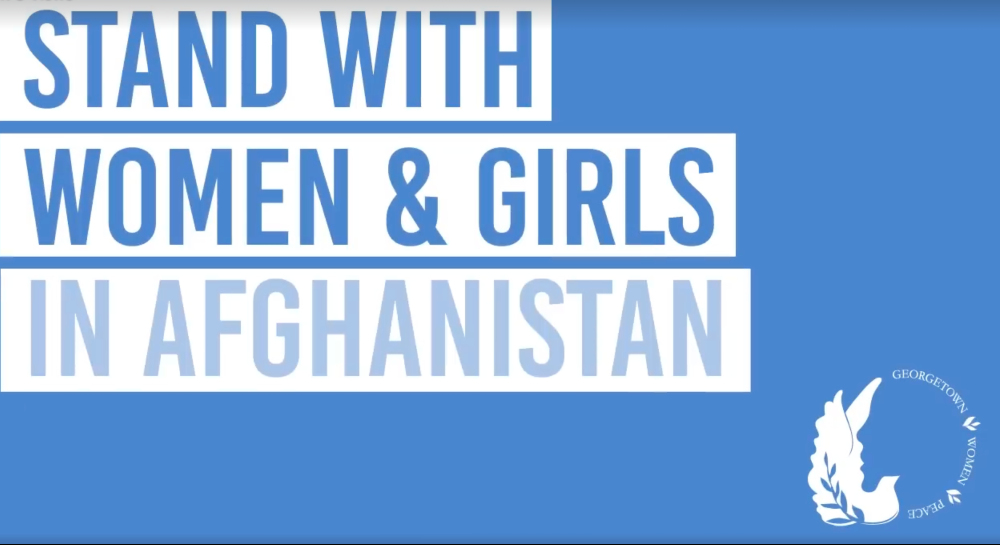
Shoalia Samadyar, an Afghan woman who lived under the first Taliban government, expressed deep concern about women’s safety.
“My heart is bleeding right now,” Samadyar said in a speech at the protest. “I am worried about the little girls and women in Afghanistan that are going through what I went through 20 years ago. Every 20 years we cannot go back to zero.”
Zainab Salbi, founder of Women for Women International, an aid organization that helped implement the march, listed several demands for the Biden administration during the event, including the provision of visas and priority evacuation of women journalists, activists and other professionals.
“Our Afghan sisters have been betrayed. They have been abandoned. They became ministers and lawyers and judges and prosecutors and teachers and principals and journalists and everything. And now, these same women’s lives are at risk. Here we are today to demand that this government prioritize the evacuation of our Afghan sisters right now,” Salbi said at the event.
Trinity Johnson (MSB ’23) was inspired to join the march by her childhood best friend, who immigrated to the United States with her family from Afghanistan.
“Her family welcomed me in, and I got to learn about their culture, their language and their life and experiences,” Johnson said in an interview with The Hoya. “To see the heartbreak in her family has moved me even more toward wanting to see peace in her country.”
The partnership of several women’s and Afghan organizations made the march more impactful, according to Alyse Nelson, president and CEO of Vital Voices, a women’s advocacy group that was one of the march’s organizers.
“What was incredible about the gathering was that it was between major women’s organizations who came together to speak out,” Nelson said in an interview with The Hoya. “In some ways that’s unusual, you usually have only one or two organizations, but we wanted to reach out to every single network.”
Between the emotional speeches criticizing the U.S. government’s withdrawal and demanding action for Afghan women, an important question arose regarding how advocates should be speaking about the situation. Multiple speakers, as well as Nelson, stressed the same message: Don’t eliminate the agency of Afghan women.
“Afghan women in the 1960s were wearing mini skirts. It is not like we liberated them somehow in 2001,” Nelson said. “These women are survivors, they are leaders, and they should be treated as such. They absolutely do not need to be saved; their voices need to be amplified.”
Facing the White House with a bullhorn in hand, Noorjahan Akbar, an Afghan activist, highlighted the message of the day.
“This is not about saving Afghan women!” Akbar said. “This is about holding your government accountable!”
Resources: On-campus resources include Health Education Services (202-687-8949) and Counseling and Psychiatric Service (202-687-7080); additional off-campus resources include the District of Columbia Office of Refugee Resettlement (202-698-4316).


